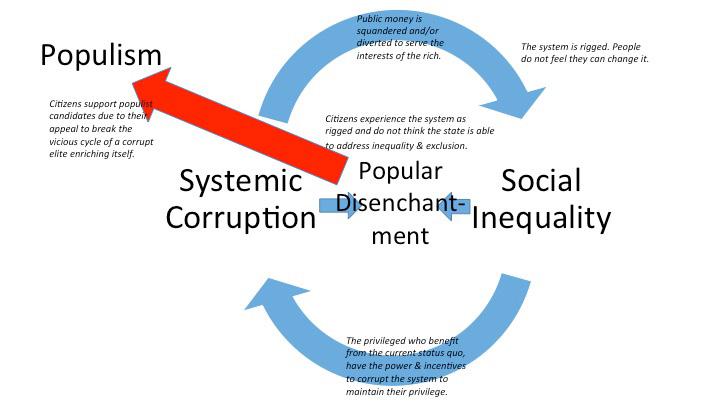Populist and nationalist movements are gaining ground across continents, reshaping party systems and pushing mainstream governments to harden positions on immigration, trade and national sovereignty. Recent elections and polling show outsider or hard‑right parties expanding their vote share in parts of Europe, Latin America and Asia, while leaders with strongman credentials consolidate power in several countries.
In Europe, far-right lists posted gains in the 2024 European Parliament vote, boosting France’s National Rally and Germany’s Alternative for Germany and reinforcing Italy’s Brothers of Italy in government. Outside Europe, Argentina elected libertarian firebrand Javier Milei, El Salvador’s Nayib Bukele tightened his grip amid a sweeping anti-gang campaign, and India’s ruling BJP retained power through a broader nationalist coalition. Even where such forces fall short of office, as in the Netherlands and Spain, their agendas are pulling policy to the right, analysts say.
The trend, fueled by inflation shocks, migration pressures and distrust of institutions, is testing international cooperation on Ukraine, climate targets, trade rules and migration pacts. Diplomats and investors are bracing for a more fragmented global order as sovereignty-first politics complicate compromises that underpinned the post-Cold War era.
Table of Contents
- Populist Gains Driven by Economic Insecurity Migration Pressures and Social Platform Algorithms
- Targeted Safety Nets Local Industrial Strategy and Skills Training Can Reduce Backlash While Preserving Open Trade
- Bolster Democracy With Independent Media Oversight Transparent Political Advertising Civic Education and Electoral System Reforms
- To Wrap It Up
Populist Gains Driven by Economic Insecurity Migration Pressures and Social Platform Algorithms
From Europe’s industrial belts to Latin America’s megacities, anti-establishment blocs are translating household strain and online amplification into electoral gains, as cost-of-living shocks collide with irregular border flows and engagement-driven feeds that privilege conflict over consensus; turnout patterns and party fragmentation further widen the opening for movements promising protection, control, and swift redress.
- Economic insecurity: Persistent inflation, weak real-wage growth, deindustrialization pockets, and precarious work heighten demand for protectionist and interventionist platforms.
- Migration pressures: Irregular arrivals, asylum backlogs, and uneven local capacity fuel perceptions of disorder and competition for housing, services, and jobs.
- Social platform algorithms: Engagement-optimized recommender systems amplify emotive content, converting grievance into mobilization through rapid outrage cycles and creator-led ecosystems.
- Institutional trust gaps: Fragmented party systems and skepticism toward legacy media lower thresholds for anti-elite narratives to convert attention into votes.
Targeted Safety Nets Local Industrial Strategy and Skills Training Can Reduce Backlash While Preserving Open Trade
Policymakers are pivoting from blunt protectionism to precision tools, arguing that cushioning dislocation and rebuilding regional capacity can temper anti-globalization anger without closing markets; plans pair automatic supports for trade-exposed workers with place-based industrial policy and employer-aligned training, drawing on evidence from “flexicurity” models and dual-education systems to keep supply chains resilient, tariffs low, and the political compact around open commerce intact.
- Targeted safety nets: wage insurance, portable benefits, mobility and childcare vouchers tied to reemployment.
- Local industrial strategy: cluster grants, public-private R&D, and procurement to seed critical domestic suppliers.
- Skills training: employer-led apprenticeships, community-college fast tracks, and paid mid-career upskilling.
- Accountability: automatic triggers based on layoffs and wage losses, sunset clauses, and independent evaluation.
- Trade compatibility: standards cooperation and mutual recognition to keep cross-border flows open while de-risking.
Bolster Democracy With Independent Media Oversight Transparent Political Advertising Civic Education and Electoral System Reforms
Across capitals, officials and watchdogs are responding to the populist-nationalist surge by insulating journalism from partisan pressure, exposing the money and tactics behind online and broadcast campaigns, retooling classroom and community programs to build news literacy, and recalibrating voting rules to reward broad consensus rather than factional spikes; the aim, analysts say, is to restore trust, curb manipulative influence operations, and reduce structural incentives that amplify polarization without restricting legitimate dissent.
- Independent media oversight: legally protected regulators with transparent appointments and multi-party vetting; guaranteed, ring‑fenced funding; open audits of state influence over newsrooms; rapid-response mechanisms against harassment of reporters; protections for whistleblowers and source confidentiality.
- Transparent political advertising: real-time, public ad libraries with machine-readable data; clear on-screen sponsorship labels; verification of buyers and beneficial owners; limits on opaque microtargeting; watermarking and provenance checks for synthetic media; timely expenditure disclosures coordinated across platforms and broadcasters.
- Civic education: updated curricula on institutions and rights; practical media‑literacy modules on verification and sourcing; nonpartisan debates and community fact‑checking labs; outreach for first‑time voters; multilingual resources to close information gaps.
- Electoral system reforms: adoption or trials of ranked-choice or proportional models to temper winner‑take‑all dynamics; independent redistricting commissions; streamlined, secure voter registration and absentee options; accessible ballot design; robust audits and transparent results reporting.
To Wrap It Up
As populist and nationalist currents gain momentum across regions, the contours of global governance are being redrawn in real time. Institutions from parliaments to multilateral bodies are recalibrating to shifting mandates, while markets and allies assess the durability of new policy directions. Supporters see overdue course corrections; critics warn of fragmented responses to borderless challenges. The next tests will come in upcoming elections, trade negotiations, and security forums, where campaign rhetoric meets governing reality. However the tide settles, the balance struck between national prerogatives and international cooperation will define the scope-and limits-of the world’s problem-solving in the years ahead.


